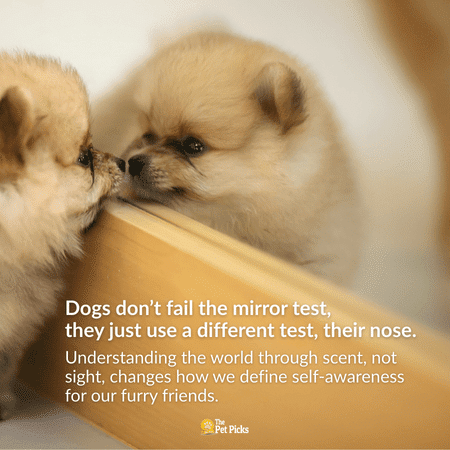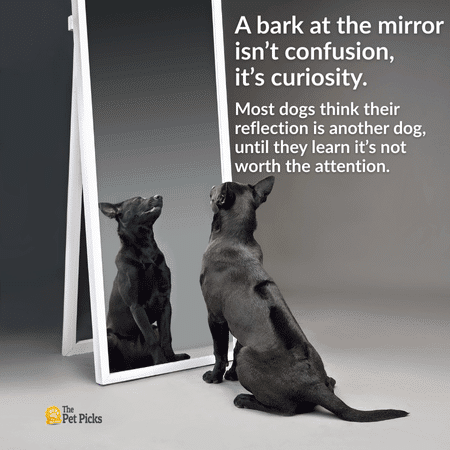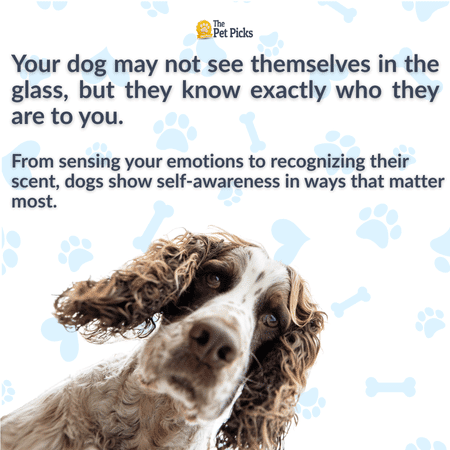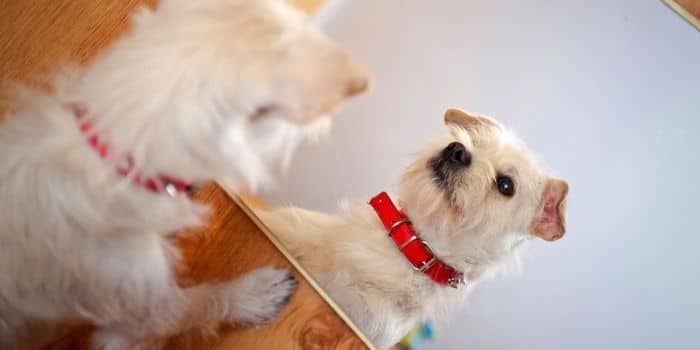That Confused Stare: Why Dogs React to Mirrors
If you’ve ever seen your dog pause, tilt their head, or even bark at a mirror, you’ve probably wondered what they see. Are they greeting a new furry friend, or do they somehow understand it's their own reflection? This curiosity taps into a bigger question about self-awareness in animals, and it’s one that continues to spark debate among researchers and pet lovers alike. At ThePetPicks.com, we’re here to help unpack what science has discovered so far , and what it might mean for your dog’s inner world.
Mirror, Mirror on the Wall , Who's That Dog After All?
The mirror test, designed by psychologist Gordon Gallup Jr. in the 1970s, was originally used to measure self-recognition in animals by placing a visible mark on an animal’s body that they could only see with the help of a mirror. If the animal noticed the mark and tried to investigate or remove it, it was seen as a sign of self-awareness.
Chimpanzees, dolphins, elephants, and magpies have all passed this test. Dogs? Not so much. When faced with a mirror, most dogs don’t inspect themselves. Instead, they often treat the reflection as if it were another dog. This response has led some scientists to conclude that dogs fail the mirror test and therefore lack self-awareness.
But let’s not be too quick to judge our pups. The truth might be more complicated , and more interesting , than a simple pass/fail grade.

Rethinking the Mirror Test: Are We Asking the Right Question?
Here’s where it gets exciting. The mirror test was built for animals that rely heavily on visual cues, like primates. Dogs, however, experience the world through their noses far more than their eyes. So while a chimp might notice a smudge on its face in the mirror, a dog might care more about the scent on the floor.
Some researchers argue that the mirror test may not be fair for dogs, and that its results don’t necessarily mean dogs lack self-awareness , just that they don’t prioritize visual reflection in the way humans and apes do. After all, being self-aware isn’t just about recognizing your face. It can also mean knowing where your body ends and the world begins, understanding your role in a group, or having a sense of time.
So What Do Dogs Really See in the Mirror?
The first time a dog encounters a mirror, they might bark, growl, or try to play. This is likely because they interpret the reflection as another animal. But over time, many dogs stop reacting altogether. That’s not because they suddenly recognize themselves , but they may learn that the reflection isn’t a real dog. It doesn’t smell, move independently, or make a sound. In short, it’s just not worth barking at anymore.
This process, called habituation, shows us that dogs are quick learners. They may not see themselves in the mirror the way we do, but they can figure out that the reflection isn’t a threat. It’s just part of the scenery.

Self-Awareness Beyond the Glass
Even if dogs don’t recognize themselves in mirrors, there’s mounting evidence that they possess other forms of self-awareness. One study involved dogs smelling two containers , one with their own scent and another with a modified version. The dogs showed more interest in the altered scent, suggesting that they had a sense of what their “normal” smell is. That’s a kind of self-recognition , just through the nose instead of the eyes.
Dogs also show emotional intelligence and an understanding of social dynamics. They can feel embarrassment, guilt, and even empathy. They’re aware of how their actions affect those around them , especially us, their beloved humans. Isn’t that a kind of self-awareness too?
How to Understand Your Dog’s Reflection Reactions
So, what does it mean if your dog barks at the mirror, tries to play with their reflection, or ignores it altogether? In most cases, it’s just a phase. Puppies and younger dogs are more likely to react, while older dogs may pay no attention. As a pet parent, the best thing you can do is observe your dog’s behavior without worrying too much.
If your dog seems agitated by mirrors, try redirecting their focus with a toy or a game. If they enjoy it, let them explore. There’s no harm in letting your pup figure things out at their own pace. Just remember: not recognizing themselves in the mirror doesn’t mean they don’t know who they are , at least in the ways that matter most.

Final Thoughts: Dogs Know Themselves Differently
While dogs may not pass the mirror test, they pass a different kind of test every day , the one where they tune in to our moods, comfort us when we’re down, and show joy when they see us. They might not need a mirror to understand who they are. Their identity is rooted in scent, social connection, and shared experiences.
So next time you catch your pup staring into the mirror, smile. You’re looking at a creature who may not see themselves like we do, but who certainly knows who they are in a way that truly counts.
FAQs
Do dogs think their reflection is another dog?
Most likely, yes. When dogs first see themselves in a mirror, they usually react as if they're seeing another animal. This can include barking, tail wagging, or trying to play.
Can dogs ever learn to recognize themselves in a mirror?
Not in the way humans or some primates do. However, they can learn that the reflection isn't another real dog and eventually ignore it altogether.
Why doesn’t my dog react to mirrors at all?
That’s actually pretty common. Older dogs or dogs who’ve seen mirrors before may be used to them and simply don’t care about the reflection.
Is it bad if my dog barks at their reflection?
Not at all. It’s a normal reaction, especially the first few times. If it becomes excessive or obsessive, try gently redirecting their attention.
Do dogs have self-awareness in other ways?
Yes. Dogs show signs of emotional awareness, social intelligence, and even a sense of their own scent, which suggests they know who they are in non-visual ways.
A Loving Reminder
The information provided at ThePetPicks.com is based on research and expertise, aiming to enhance the bond between you and your dog. However, it’s essential to remember that every dog is unique. Always consult with professionals, like veterinarians or trainers, for specific concerns or advice. At ThePetPicks.com, we believe in “Trust Born from Love,” and we encourage every pet parent to make informed decisions rooted in love and care.

